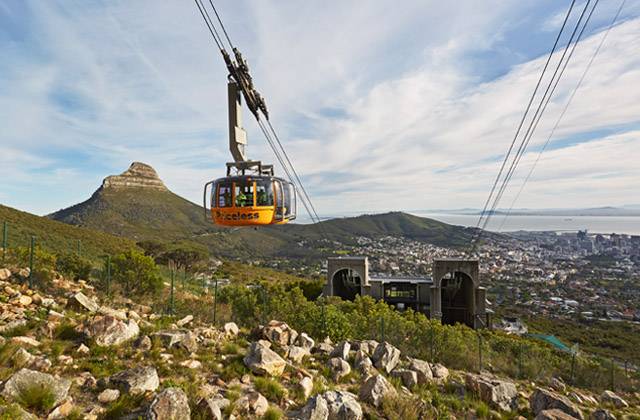
With the cableway transporting more than a million locals and tourists to the top of Table Mountain every year, an unfortunate consequence is the amount of rubbish left behind in the form of plastic bottles, food packaging, discarded tickets and more.
This can have a devastating effect on the 1,460 species of plants and multitude of fauna found here.
But fortunately there’s a team of eco-warriors working tirelessly to keep Table Mountain clean – and the rest of us can also do our part!
“Our city can boast being recognised as one of the most beautiful locations in the world, along with offering incredible experiences to every tourist visiting Cape Town,” Wahida Parker, MD of the Table Mountain Aerial Cableway Company (TMACC), says.
“Our role as ambassadors is to ensure anyone who walks along the summit of the mountain is left with a feeling of wonder and delight, and respect for efforts that are made to protect our mountain.

“As proud South Africans we need to come together and put in the necessary work required to reduce the amount of waste on Table Mountain to safeguard our country’s pride and heritage.”
Wahida Parker
It’s a hefty task but the company is fully up to it: TMACC was recognised for “Best Resource Management in Waste” at the 2019 African Responsible Tourism Awards by adhering to the UN’s Principles on Responsible Tourism.
The company’s current waste plan has reduced the amount of rubbish on the mountain by 40%. About 55% of the waste gets recycled and the aim is to push that to 80% by 2021.
“We take this issue very seriously and will continue to work together on creating the best possible methods to deal with waste disposal,” Parker says.
Initiatives include allocating more recycling bins on the mountain, ensuring all beverage and food outlets use compostable cutlery, and fitting special tanks to the cable cars to transport wastewater to where it can be drained into a municipal sewer system.
“To safeguard the future of our environment, we will need to work together to make sure Table Mountain is kept green and clean,” Parker points out.
That means all of us also share the responsibility of conserving our ecology and biodiversity, preserving water and keeping South Africa’s beautiful natural environment healthy.